From sports to festivals and murals
How the UU spent 8.3 million euro on student well-being
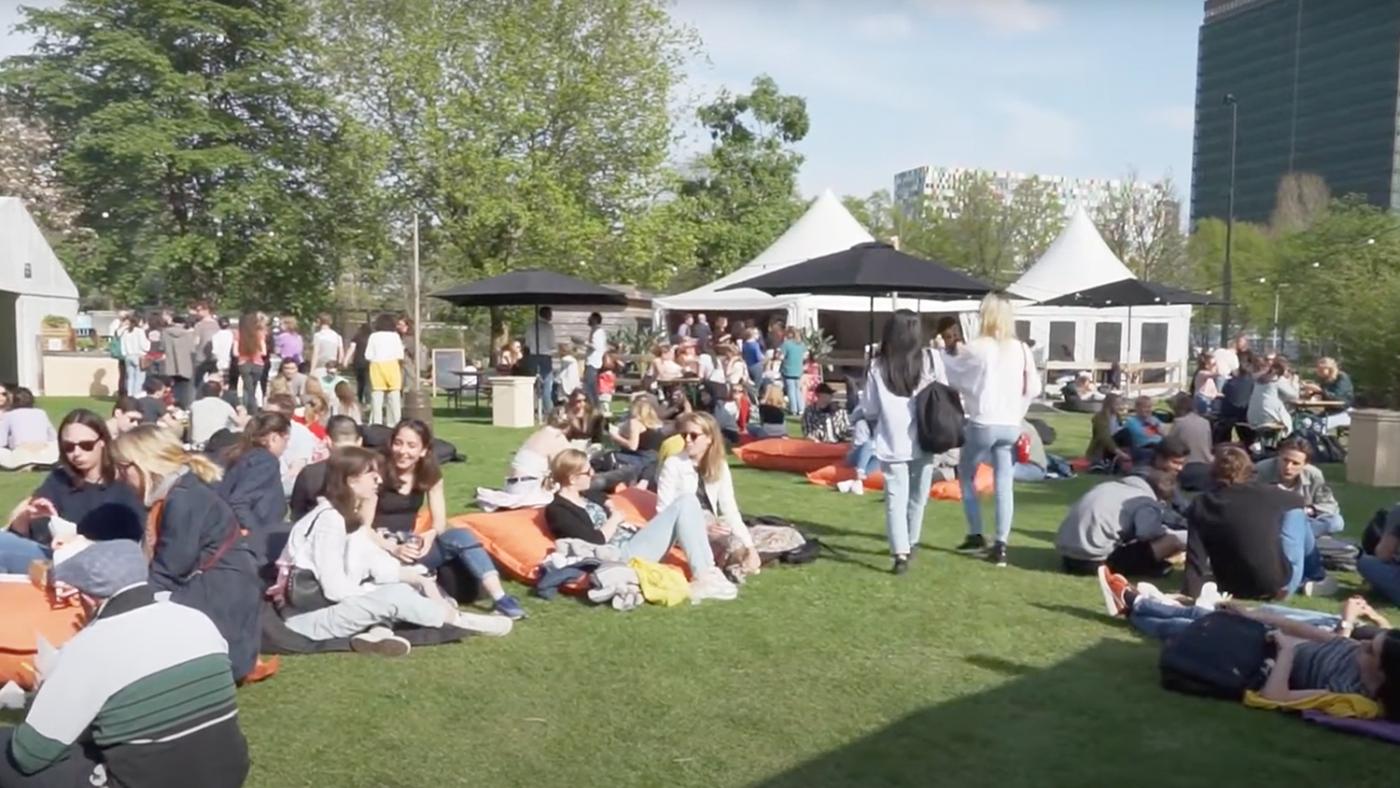
It has been five years since the start of the coronavirus pandemic. Many of the students who were caught by lockdowns in their first year have now completed their bachelor's degrees. Looking back, it was a difficult period. Education was largely online, with the exception of a few practicals, and opportunities to organise social activities were minimal.
A study by the RIVM made it clear that the mental health of students was in a poor state. A study by DUB showed that students were particularly affected by the coronavirus crisis.
In the spring of 2021, the Ministry of Education and higher education institutions agreed on a support package to “catch up on learning experiences and improve education”. This package included a halving of tuition fees, extra compensation for universities for the growing number of students, extra money for extending expiring research contracts and support for internships. Universities received a total of 76 million euros, of which Utrecht received approximately 37 million euros.

Cheaper sports
The spending of the money was subject to a number of conditions. Part of the money could be spent by the university on helping students who had fallen behind in their studies due to the coronavirus, strengthening the bond with the programme and improving mental health, which had been affected by the coronavirus. Initially, this was to be for a period of two years.
The UU wanted to use this money to make sports cheaper, organise catch-up introductions, extend the opening hours of the Parnassos bar so that it could serve as a meeting place during the day, and offer extra study guidance.
The programme was extended by politicians and thus ran from 2021 to 2025. A total of 8.3 million euros was made available for this part of student support. A report is now taking stock of the situation. Where did the money go? Did it contribute to the well-being of Utrecht students? And what lessons have been learned?
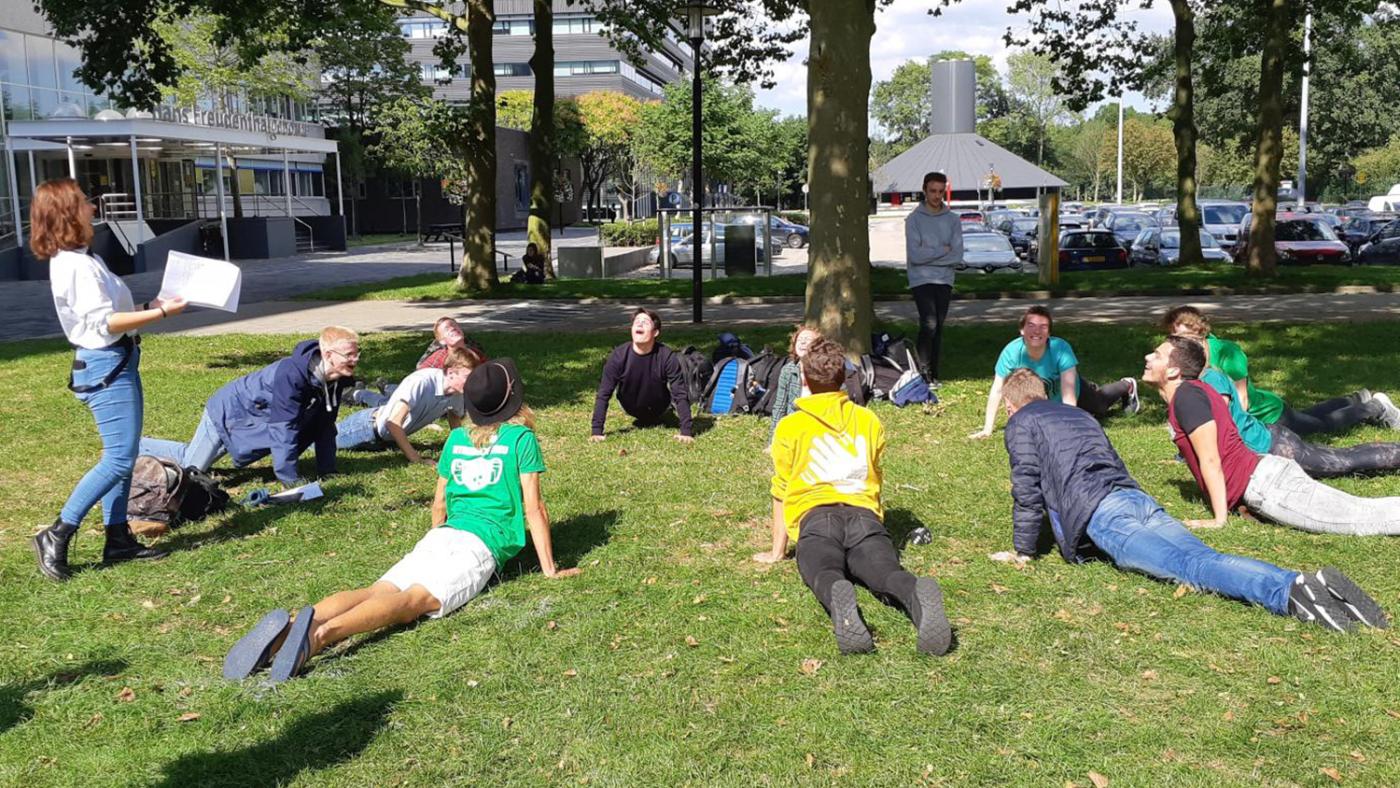
Concentration and motivation
Universities were pretty much free to decide how they wanted to use the money. While some decided to hire extra lecturers, Utrecht University chose to invest mainly in student well-being. "Here, we saw that study progress did not deteriorate during the coronavirus pandemic.
Surveys showed that students were mainly bothered by the lack of social contact and were afraid of having a less impressive CV at the end of their studies,‘ says Anne Hamburger, project manager of this NPO project. ’Students also indicated that they had problems with concentration and motivation. They were afraid of graduating with fewer skills than their predecessors."
That is why the Utrecht funds were mainly used to address these issues, she says. In practice, anyone at UU was allowed to submit a proposal. This resulted in a huge response. A committee assessed the extent to which the proposals would indeed contribute to the well-being or involvement of students in their studies.
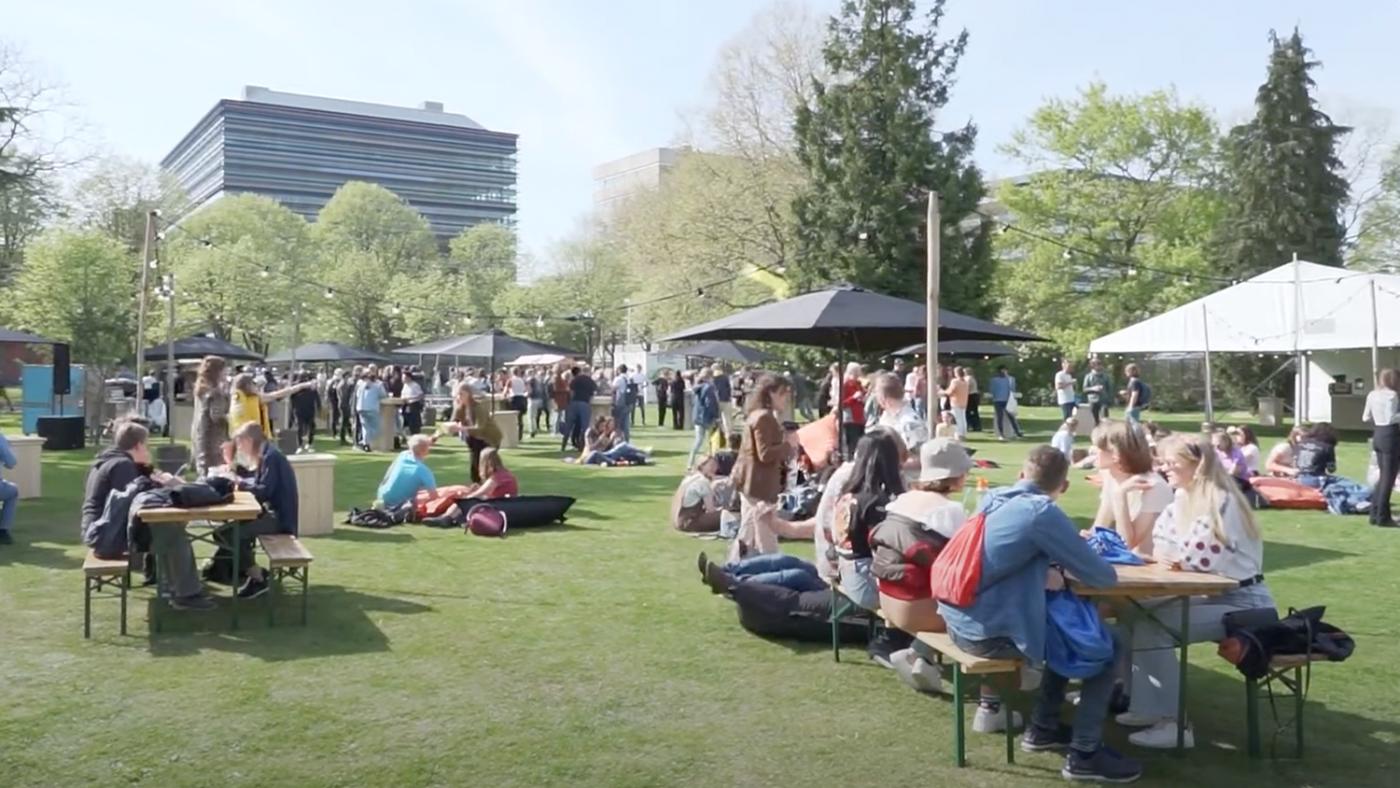
This is UU week
Hamburger distinguishes between the initial period of 2021-2022 and the period thereafter. In the former, there was a particular need for opportunities to meet each other.
So the Parnassos bar became a meeting place and students received discounts at the Olympos sports centre and for courses at the Parnassos cultural centre. A lot of effort went into setting up the student 'living room' De Vagant. Picnic tables with chess boards, table tennis tables and relaxation areas with hammocks were installed in Utrecht Science Park.
The UU organised This UU Week, a week full of activities to get to know each other. This was mainly intended for students who had to follow the Utrecht Introduction Days online.
But student organisations also received a huge number of requests to set up opportunities to meet up. These included a korfball tournament, walking sessions with students, pub quizzes, introduction camps, an excursion to DomUnder and much more.
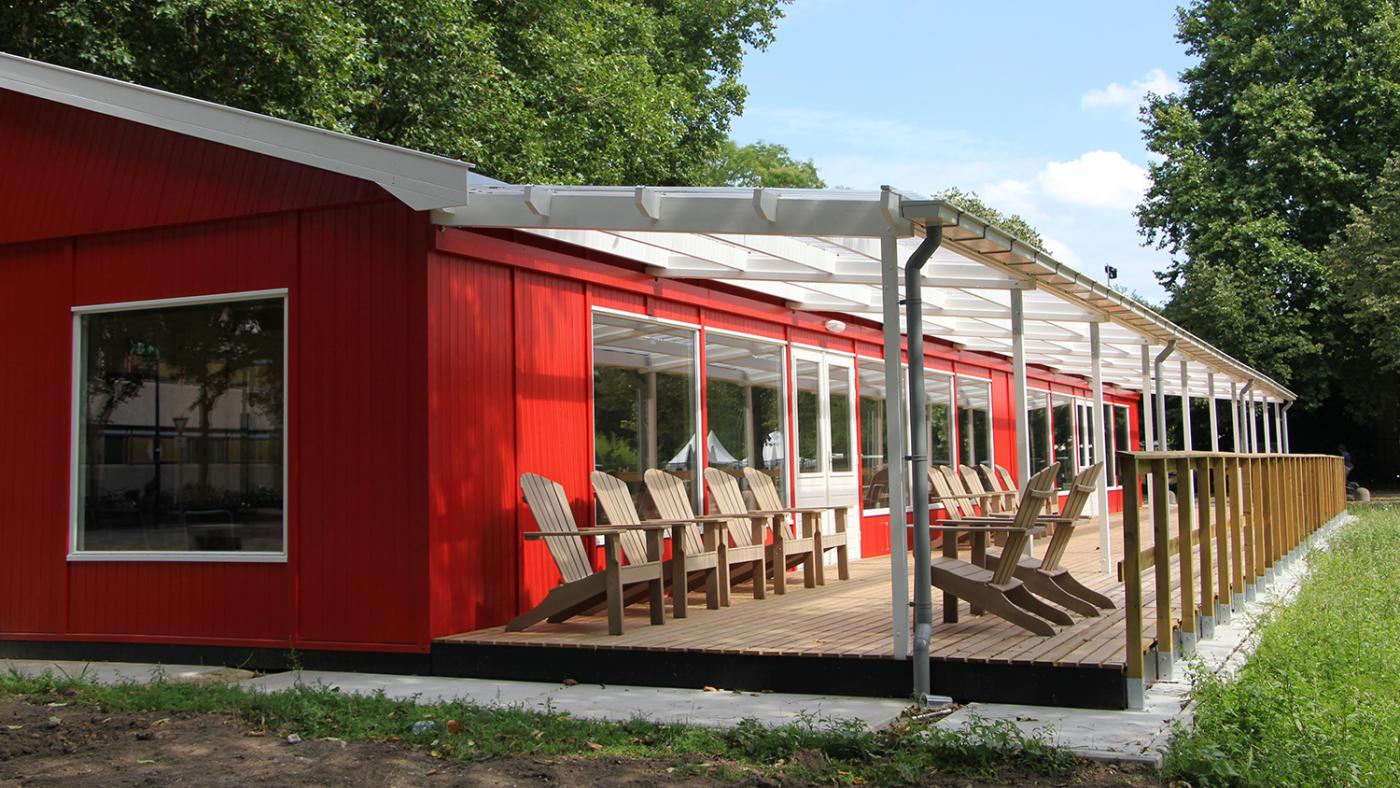
DomUnder
Hamburger: 'In the first phase, student organisations were eligible for a grant of 1,000 or 500 euros. They had to indicate what they wanted to do, and we assessed the extent to which those meetings could actually take place. A visit to DomUnder is fine, but ultimately it's about students actually engaging with each other. There has to be something extra, apart from walking through the dark vaults together."
In the second phase, the emphasis was more on student well-being. Students were able to return to the university, but they didn't dare to. They were afraid to meet each other. You saw suggestions for festivals with relevant themes coming from both students and faculties. One example was the failure festival in 2023 in TivoliVredenburg. Another example was the symposiums van waar trek jij de lijn (where do you draw the line) on drug use in the student world, organised by student associations. Also popular was a workshop by “Gelijkspel”, a student-led project on sexual safety. DUB's theme magazine on student mdental health was also funded from this pot.
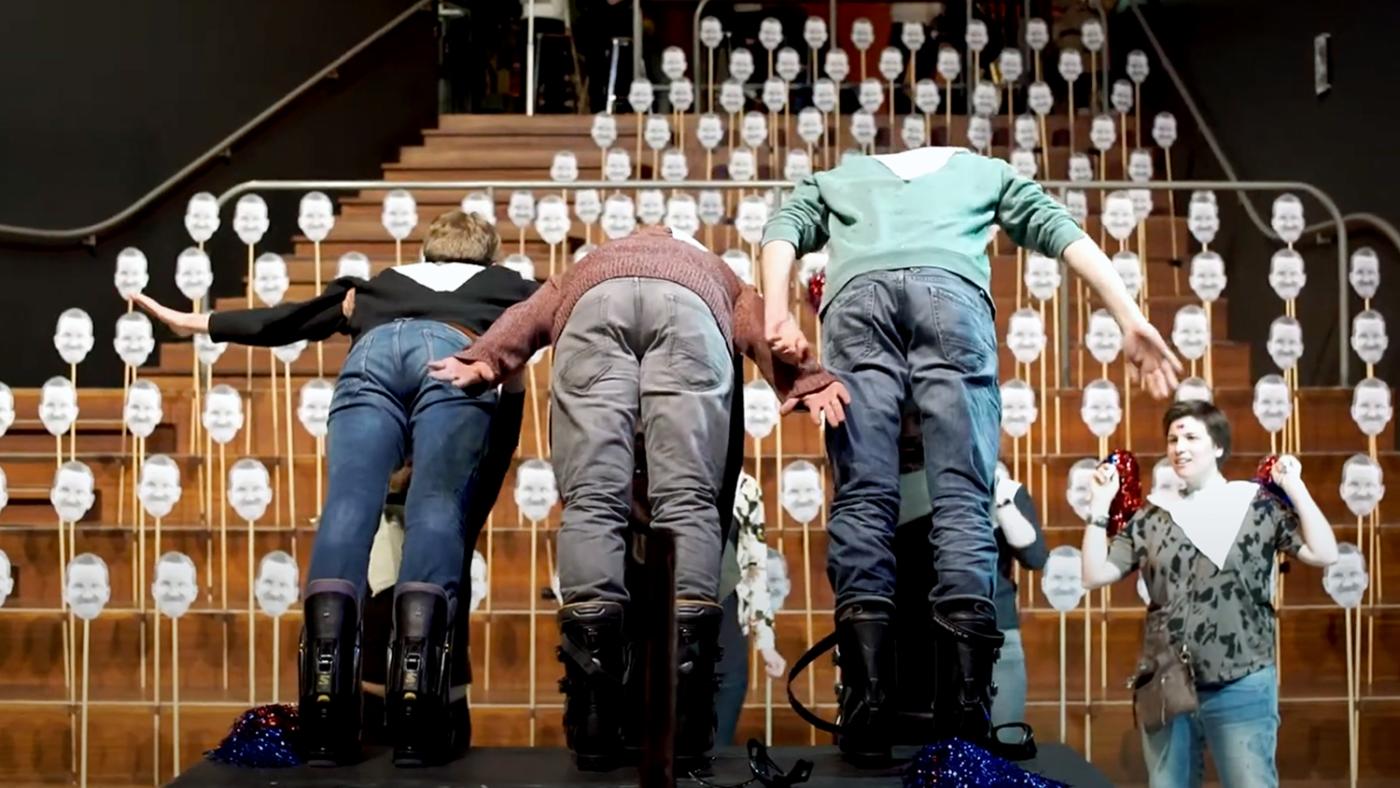
Rejected
A total of five hundred applications were submitted, varying in size. Half were submitted by students, a fifth by students and staff together, and a third by staff alone. Most applications received a positive assessment. But certainly not all of them. Hamburger: 'We looked at whether the financial contribution was proportionate to what was being offered. Someone wanted to offer a digital mindfulness course for Master's students. The costs per person were high and we already had several mindfulness courses at UU. So that was rejected. Proposals for course developments were also rejected. That is regular work and had little to do with the pandemic.”
In hindsight, it is difficult to determine exactly what effect all these activities have had. How can you measure the significance of a social gathering when, at the same time, lockdown restrictions are being lifted and social life is picking up again? How do you know what effect a lecture or a festival has had on the students who attended? Hamburger dares to conclude that every student in Utrecht has consciously or unconsciously been introduced to an activity that was funded by these NPO funds.
High no-show rate
One of the problems the organisation faced was the high no-show rate. The Faalfestival (Failure Festival) in TivoliVredenburg, for example, was promoted quite extensively. But in the end, it was disappointing that only 400 students turned up out of the 1,500 who had registered. This was the case for several events.
The final report contains a few suggestions on how to prevent no-shows. For example, it helps to offer a free lunch or inexpensive food in conjunction with the activities. Hamburger recalls a lunch attended by various student support staff. ‘This allowed us to reach a large number of students on a small scale, who were able to ask questions.’
No-shows can also be prevented if the initiative lies with the student organisations, which then take care of attendance from their own group. Or if the activity is organised by the programme itself.
Temporary appointments
Looking back, Hamburger concludes that it was a pity that the project initially seemed to be limited to two years. ‘Then you take that into account when choosing the activities.’
In the end, the project was extended twice. ‘That meant we had to keep adjusting. It wasn't easy to retain the appointed staff. They were only hired on a temporary basis. This applies to extra student counsellors and psychologists, among others. If you had known in advance that it was going to be for a longer period, you might have made different choices.’
As mentioned, the activities and plans within the project varied enormously. Activities with an emphasis on fun to stimulate contact, substantive lectures, investments in the environment, allowances for master's students to attend a conference abroad, extra student guidance, knowledge clips to improve study skills, activities for lonely internationals in December. It is difficult to summarise under one heading. Moreover, Hamburger points out that the type of activities and investments were determined by the current situation with the coronavirus crisis.

A stark contrast to budget cuts
The project ran until the end of 2024 and has now come to an end. However, current students can still benefit from some of the projects. For example, the ping-pong tables will remain in place and the recently installed mural will be visible for years to come. The Skills Lab has produced videos on study skills and videos with tips and tools for student well-being, an impact coaching programme in Geosciences has been converted into an elective course, and the Academic Routeplanner developed by UMC Utrecht continues to help students and study advisors navigate their way through the programme towards graduation.
The fact that it has been possible to invest in student well-being in such an unrestricted manner for many years stands in stark contrast to the budget cuts that have been announced for the coming years. However, should times come when special attention needs to be paid to students' mental health, the Student Education & Research department has several contingency plans in place that can be implemented immediately.